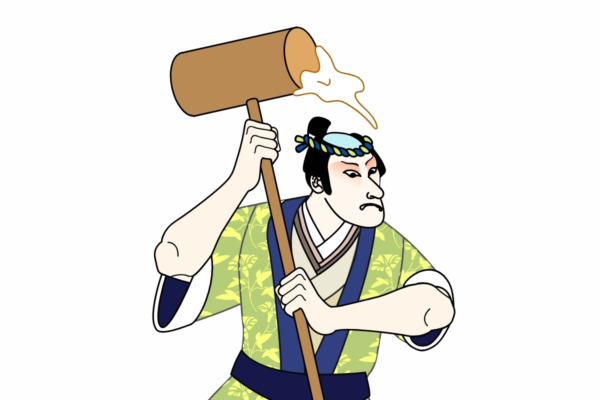With an endless array of captivating cinema dating back to 1894, Japanese films make up one of the largest, oldest, and universally admired film industries in the world. Luckily for us, The British Film Institute is releasing an immense and irresistible pool of films online under their Japan 2020 label that will blow our minds – and leave us munching on popcorn until the early hours.
- About BFI
- Japan 2020
- What can I watch on BFI Player right now?
- Upcoming releases on BFI Player:
- More from BFI:
- Japan Nakama TV & Film
About BFI
Founded in 1933, The British Film Institute (BFI) is the UK’s leading organisation for film and television; a cultural charity that handpicks the very best of global cinema to be enjoyed at festivals, in cinema, and online. As well as supporting existing and emerging filmmakers, the institute looks after (and draws inspiration from) the BFI National Archive: the world’s most significant film and television archive. It also proudly runs London’s BFI Southbank – renowned as the number one cinema to watch non-English language films in the UK.
Japan 2020
In celebrating over 100 years of Japanese cinema, BFI has launched a 6 month-long (May to October) online release of fascinating thematic film collections making up their Japan 2020 programme on BFI Player; which – since its launch in 2013 – has become the go-to place to enjoy a wide range of films unavailable at local cinemas.
Showcasing filmmakers who have ‘inspired admiration and fascination around the world, BFI Japan lets film fanatics feast their eyes on over a century of Japanese cinematic brilliance. The programme highlights the iconic work of screenwriter/director’s Yasujiro Ozu and Akira Kurosawa– plus Classics from the Golden Age (1930s to early-50s) and the rebellious convention-breaking films (typically late 50s to 70s) of Japanese New Wave. Also featuring are Cult Japan’s erotic films, independent 90’s films, the best of a 21st century film, plus astonishing anime, stunning silent films, and jaw-dropping Japanese horror.
With access to all these film collections on BFI Player coming cheaper than a city pint at just £4.99 a month (and with a 14-day free trial available to new customers) – it would simply be rude not to sit back, put your feet up and reach for the popcorn.
Akira Kurosawa

The first Japanese filmmaker to shoot to stardom, Japan 2020 is showing 21 astonishing Akira Kurosawa films on BFI Player. Some must-watches include Seven Samurai (1954), which has set the benchmark for action films ever since its release; Rashomon’s (1950) story of conflicting versions of a rape and murder account; and Drunken Angel’s (1948) part gangster, melodrama, and social critique on trouble friendship. Plus his Japanese Shakespearean adaptations Ran (1985), Throne of Blood (1957), and Bad Sleep Well (1960).
Japanese Classics

BFI’s Classics collection gives viewers a magnificent highlight reel of 20th century Japanese films – from the Golden Ages of the 1930s and 50s to the post-war generation who scrapped cinematic conventions and the new contemporary masters who made their names in the 90s. Especially gripping is Woman of the Dunes (1964), awarded Winner of a Special Jury Prize at Cannes in 1964 for its combination of erotic drama and outrageously gripping thriller. Nagisa Oshima’s desperately sad and enchanting Cruel Story of Youth (1960) and Masaki Kobayashi’s supernatural horror Kwaidan (1964) also merit a watch. Among many more.

With his films centred on Japanese life, character, and generational relationships, Yasujiro Ozu’s films continue to fascinate and intrigue viewers. Lucky for you, BFI’s Japan 2020 has given us 25 of his best to enjoy. Particularly worthy of note is the silent film I Was Born, But… (1932), Toyko Story’s poignant exploration of filial duty and respect, and his much-loved comedy Good Morning (1959). As well as the infamous The Flavour of Green Tea over Rice (1952). There’s no shortage of brilliance to tuck into.
Cult Japan

The Cult Japan collection is packed full of erotic and sexual exploitation. Shun’ya Itô’s Female Prisoner #701: Scorpion (1972) tells a captivating tale of betrayal and revenge; Inflatable Sex Doll of the Wastelands (1967) involves a hitman, kidnapping, erotica, and yakuza violence; and erotic comedy Blind Love (2005) shows a ventriloquist imitating the voice of his best friend as he dates a visually impaired girl.
Anime (released 31 July)

BFI’s anime collection hones in on the creative animations of Mamoru Oshii and Mamoru Hosoda. Wonderfully gripping is Oshii’s Ghost in the Shell (1995), a futuristic cyberpunk portrayal of a policewoman’s hunting down a powerful hacker; and Mamoru Hosoda’s Wolf Children (2012), a bewitching story of a Toyko University student who falls for a man who attends her lectures despite not being registered as a student. The Girl Who Leapt Through Time (2006) likewise stands out as a brilliant watch.
Studio Ghibli fans do not panic – the world-famous anime will make up a huge part of BFI’s in-venue anime season next year at BFI Southbank – alongside early anime titles, Studio Ponoc, the films of Satoshi Kon, and much more.
Independence Films (21 August)

This unique collection of films includes the politically provocative, post-war Japanese New Wave films and the finest independent films from the 1990s. Standouts are Funeral Parade of Roses (1969): a documentary-stroke-drama on the 60’s Tokyo queer underground scene. And for a guaranteed giggle, switch on Takeshi Kitano’s Getting Any? (1995) on one man’s relentless obsession to buy a car for the purpose of sex.
21st Century Collection (18 September)

September marks the time when BFI celebrates Japanese filmmakers making their mark in the 21st century – including Sion Sono, Naomi Kawase, Kiyoshi Kurosawa, Yuya Ishii, and Koji Fukada. Naomi Kawase’s Sweat Bean (2015) shows a struggling street vendor whose life is changed by a chance encounter, and Sion Sono’s Cold Fish tells the tale of an ordinary fish shop owner whose life and family is taken over by a fellow fish entrepreneur who turns out to be a serial killer. Intrigued? You should be.

These rare masterpieces make up the earliest known Japanese films. Remastered and digitalised by experts at the BFI National Archive, these prized possessions offer a Western take on Japanese lifestyle and culture. Better still, BFI is making them available for free. Japanese Dancers (1894) stands as the oldest surviving film – and Ainus of Japan (1913) and Japanese Festival (1910) are both enduring testaments to Japan’s excellence in film.
J-Horror (30 October)

Prepare yourself for an electrifying and eclectic J-Horror collection with everything from horror comedy to zombie musical (yes…really). Starring directors include Shin’ya Tsukamoto, Takashi Miike, and Hideo Nakata. It was Nakata’s RING (1998) that effectively started the J-Horror genre: it documents a journalist who investigates a cursed videotape that kills the viewer a week after watching it. This and more: ready and waiting with Japan 2020.
Note that BFI Player can also be accessed on Amazon Prime Video, Apple TV, and Roku (US).
More from BFI:
BFI Japan is not just online – Japan’s finest filmmaking is set to take over BFI Southbank as soon as venues reopen with four unique film seasons.
The Golden Age (1930s to early 1960s) – LATE 2020 TBC.
Radicals and Rebels (post-1964) – LATE 2020 TBC.
21st Century Japan (post-2000) – EARLY 2021 TBC.
Anime (early & modern anime in a two-month season) – SUMMER 2021 TBC.
Seven Samarai in Cinema

BFI is showing Akiro Kurosawa’s sensational Seven Samarai in selected cinemas (dates to be announced upon cinema reopenings). Set in 1586 (during the Sengoku period), this 3hr 27min action/drama sees a group of peasants become fed up with bandits raiding their village every year and so they hire seven samurai warriors to protect them.
Japan Nakama will be reviewing a brilliant range of BFI’s Japan 2020 film collections. Watch this space.
If you enjoyed this article, you might enjoy:
Best Toyko International Film Festival Movies















































